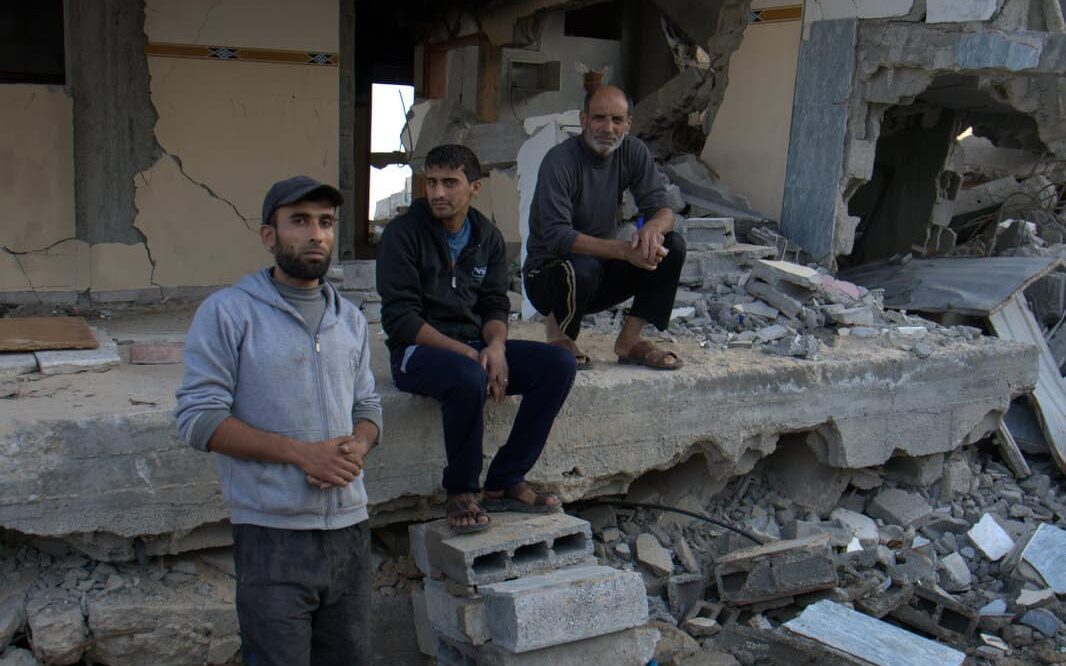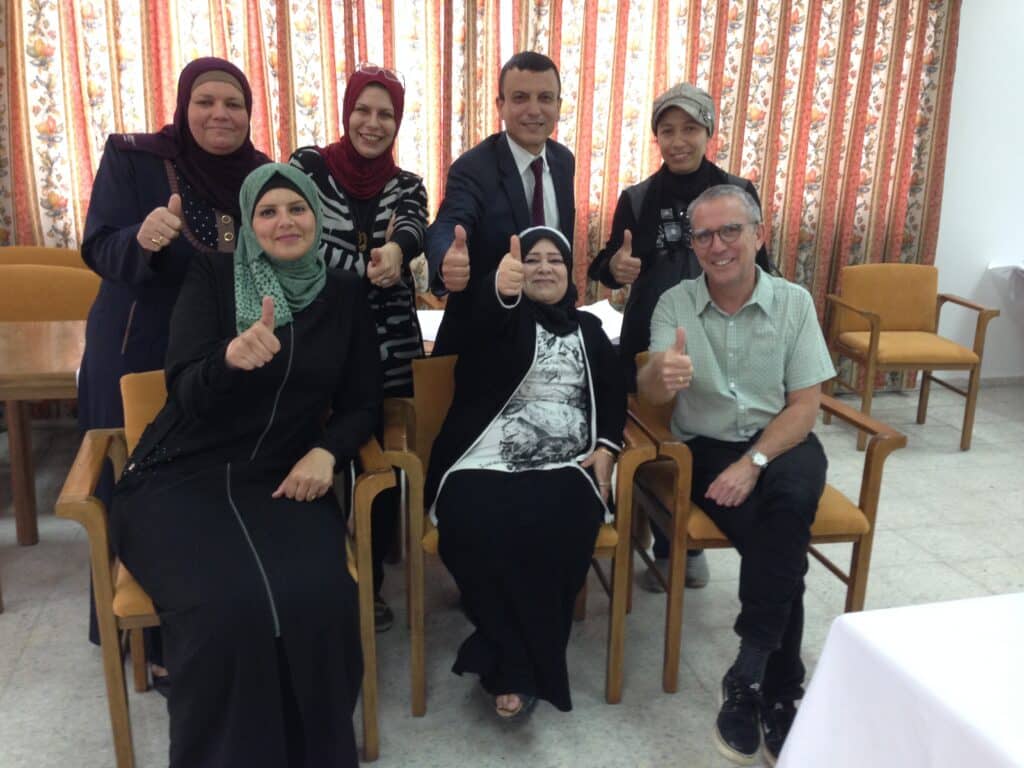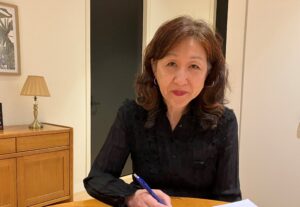
Tim Budge
20 December 2023
“This used to be paradise,” Suhaila said. “You could drive to Gaza City from anywhere, sit on the beach, buy local fresh oranges. It was beautiful, it was so relaxing.”
We are sitting in one of the few remaining seaside restaurants near Gaza City. It is November 2014 and Suhaila’s statement is both believable and implausible. The beach is there, the stunning Mediterranean Sea is there, the seafood is wonderful, as is the Palestinian hospitality. Squint and this could be Crete or Cyprus.
However, this is Gaza in the 21st century. It was bad in 2014 and worse again when I visited the hospital in 2018. Untreated sewerage flows into the ocean because there is not enough diesel to run the EU funded treatment plant. Harvests of strawberries and other produce are abundant, but are arbitrarily stopped from export. Fishing is restricted, with Israeli patrol boats ready to push the fishing trawlers back if they travel further than six to 12 kilometres. Entry into the strip is like entering a prison. As a white, Western male, it is inconvenient but possible for me to travel in and out, and requires permission from the Israeli and Gaza immigration. For most Palestinians, exit is an impossible dream. Jerusalem, with its churches and mosques, is only 75 kilometres away but it might as well be on another planet for Palestinians.
Read more: Gaza’s al-Ahli Hospital shut down by force
Suhaila Tarazi is director of the Anglican al-Ahli Hospital in Gaza City, the oldest hospital in the Gaza Strip. The hospital and Suhaila are living institutions: fearless, universally well-respected and passionate about tending to the sick and improving local health systems, while trying to respond to wave after wave of bombing and destruction from the Israeli Defence Forces. On these trips, I am in Gaza on behalf of Anglican Overseas Aid, to work with the hospital on their lifesaving breast cancer screening project. The project provides free screening and works with resilient and tireless women’s community groups to change attitudes and support women facing a cancer diagnosis or treatment. Up to 40 per cent of women are unable to leave Gaza to get radiotherapy treatment, since this is not allowed in the strip, reinforcing the sense of imprisonment and the arbitrary oppression imposed on all Gazans.
During my 2014 visit, I was driven around suburbs that were newly destroyed, building after building flattened, people living in the rubble, with their furniture and wood stoves among the concrete and collapsed stairways. Even clinics and disability centres were not spared. On my visit in August 2018, my room was shaken when the Israeli Defence Force demolished a five-storey community centre a kilometre away from where I was staying.
Read more: Growing urgency for medicine, water, aid in Gaza as ceasefire end looms
Now it is 2023 and a wave of total destruction has been unleashed. On Wednesday, 18 October, I woke to the news that the al-Ahli Hospital had been hit by another missile, the second in four days. Initial reports were that 500 people had been killed, although that number has been revised down. The IDF was initially blamed, but there is widespread debate about the source, trajectory and capacity of the missile. The old adage about truth being the first casualty in war is ever true now. The World Health Organisation reported 203 Israeli attacks on health care between the 7 October and 28 November.

I was in tears for most of the next few days, heartbroken as to what might have happened to people like Suhaila, or Issa, Ibrahim, Mohammed, Samira, Mahmoud and others: doctors, accountants, nurses, drivers, and the hundreds of people sheltering in the hospital compound. Information slowly trickled in, as people there were almost totally cut off from communications. Those I did contact or receive news about, including Suhaila, appear to be still alive. But in the understated, very Palestinian words of one friend and colleague, they were, “not good”. As I write, the news has come in that the hospital is now closed and unable to continue operating.
These are temporary and isolated stories of survival, among a huge, ever-increasing toll of death, injury and destruction. One child is killed in Gaza every 10 minutes. About 20,000 people have died. About 1.9 million people are displaced in an area a quarter the size of Geelong. People are queuing three days to get enough flour for one day’s bread. Destruction is not limited to combatants, to the members of the terrorist group Hamas. Destruction is raining on pregnant women, on children – who even if they survive will carry trauma forever. Poets, writers, journalists are being killed. Even the third oldest church in the world was bombed, despite being a refuge for Christians and other citizens.
Read more: Synod condemns violence against civilians in Israel and Gaza
I’m struggling to respond, as are many, many others. I have been in humanitarian work for 30 years but it is Gaza which affects me the most. In part it is the combination of the personal connection to wonderful people there and their suffering, as well as the facts: the massive destruction that is without parallel and without justification. This is collective punishment and it only extends and exacerbates the cycle of human rights abuses, destruction and aggression that has been churning for the last 75 years or more.
I take some small comfort from the waves of support for Palestine and Gaza in Australia and elsewhere. I am relieved that Australia has changed its voting pattern at the United Nations General Assembly. People are starting to wake up to the horror of life in Gaza and how this wave of total destruction needs to stop.
However, the call to speak out against injustice needs to be taken up and amplified within the Christian church. We cannot look away. We cannot take refuge in old tropes about the Promised Land when our brothers and sisters in Gaza are paying the price for this one-sided view of history. We need to listen again to our call to be peacemakers, to seek justice, to demand that nations turn missiles into ploughshares.
Read more: Growing urgency for medicine, water, aid in Gaza as ceasefire end looms
We must speak up, attend rallies, pray for peace and justice in the Holy Land, and listen to Palestinian as well as Jewish friends. We must tell our politicians that children and unarmed civilians must never be the target of bombs. We must tell them that Australia should not export military equipment to Israel. We must push back on all messages that dehumanise, that blame and justify punishment of the many instead of the few. This is our role as the church and followers of Jesus, the Prince of Peace. I hope we can live up to that calling at this crucial time.
Tim Budge has been a development and humanitarian worker for over 30 years. He has a PhD in development studies and now lives on Taungurung land in central Victoria.
For more faith news, follow The Melbourne Anglican on Facebook, Instagram, or subscribe to our weekly emails.







